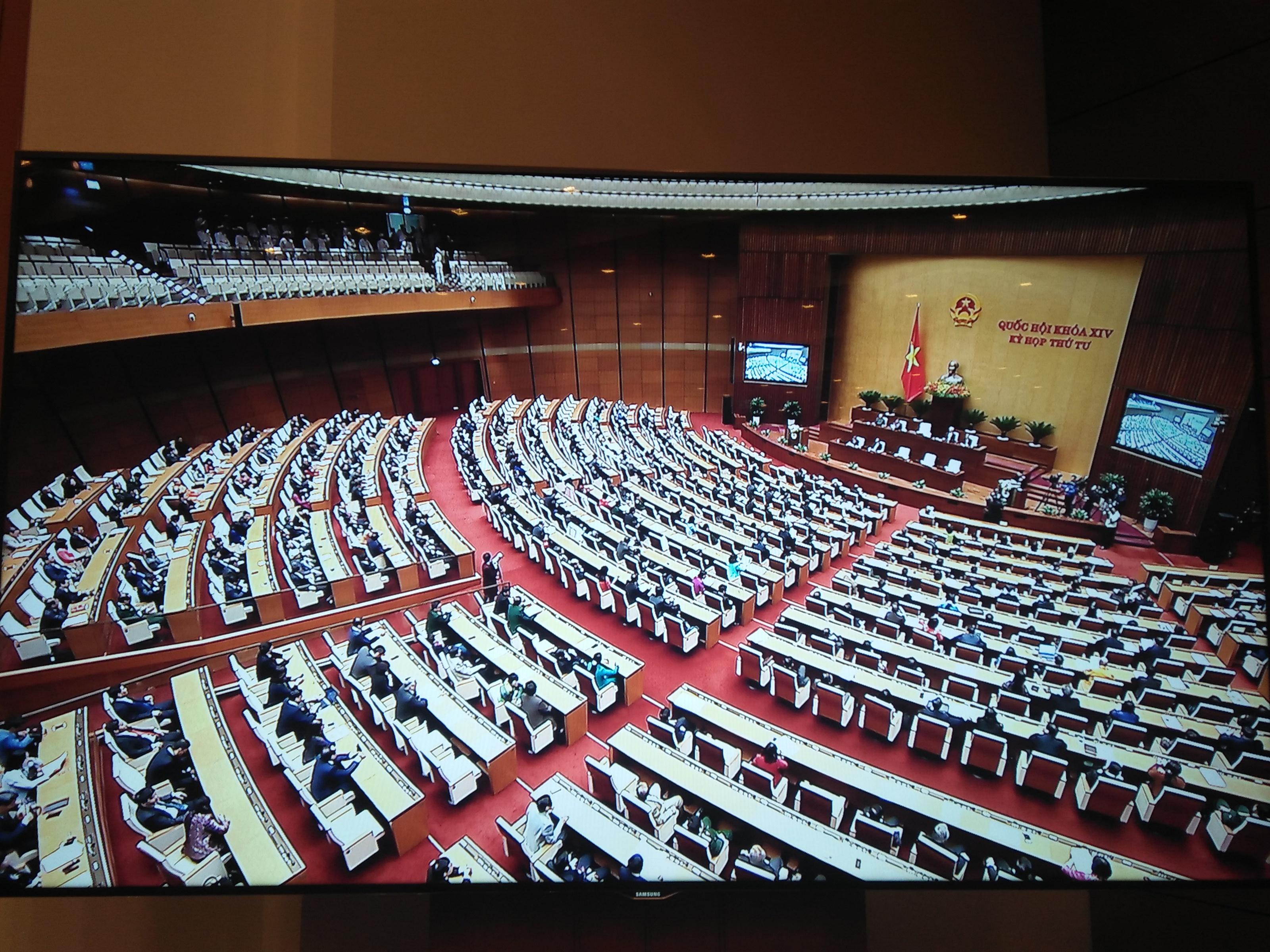National Assembly wrapped up with big laws
 |
| The National Assembly ratified six bills and ten resolutions and amended nine bills |
National Assembly Chairwoman Nguyen Thi Kim Ngan stated that during the 26-day session the National Assembly has considered and ratified six bills and ten resolutions, as well as reviewed nine bills.
“The session was a big success, with National Assembly members having made positive and responsible contributions to the session’s discussions,” Ngan said. “All discussed laws will continue being considered carefully, so that they will have the best quality and meet all new requirements of the country’s socioeconomic development.”
During the session, the National Assembly reviewed, debated, and gave opinions on a number of reports regarding the socioeconomic situation of 2017 and objectives of socioeconomic development for 2018, as well as the implementation of the 2017 national budget allocation. Q&A activities were also conducted transparently, democratically, and constructively.
The legislature also passed a hallmark resolution on Vietnam’s socioeconomic development for 2018, with the targeted economic growth of 6.5-6.7 per cent.
The economy grew by 6.41 per cent in this year’s first nine months, higher than the 5.99 per cent in last year’s corresponding period. The rate hit 7.46 per cent—from 6.28 per cent—in the second quarter and 5.15 per cent in the first quarter. It is expected that the economy will grow 6.7 per cent this year, reaching the National Assembly’s target set earlier.
According to the government, the economy is likely to reach its 6.7 per cent growth target, thanks to strong growth in the economy’s key sectors this year, including the agro-forestry-fishery (up 3 per cent—a fourfold increase against 2016 to hit a record $35 billion in export turnover), industry and construction (up 7.17 per cent), and services sectors (up 7.25 per cent—the highest rise since 2008).
Of the industrial sector’s growth, the manufacturing and processing sector is expected to rise by a record rate of 12.8 per cent year-on-year.
However, this year, if the mining sector had not suffered from an estimated decrease of 5.9 per cent, the whole economy would surely grow by 7.24 per cent, the government said.
Notably, among the many laws approved, the legislature adopted the Law on Public Debt Management, which will help the country to control public debt more effectively.
Responding to National Assembly members’ anxiety about the country’s financial security, Deputy Prime Minister Vuong Dinh Hue reassured them by announcing that the public debt situation “is getting better.”
“The public debt rate is 62.6 per cent of the GDP now, with the government’s debt being 51.8 per cent of the GDP, both lower than the respective permissible limits of 54 and 65 per cent set by the National Assembly,” Hue announced.
“The government and the prime minister have made thorough calculations, and see that the public debt cap is just one factor. The most important thing is our ability to repay the debt,” Hue said.
In addition, the National Assembly also adopted the long-awaited Law on Planning, which is compiled by the Ministry of Planning and Investment, making it more convenient for the government to control the planning of many sectors and products, where there are overlapped control mechanisms at the moment.
The law will adjust a total of 190 articles in 25 existing laws, and cover 38 types of national-level sectoral planning—such as road, railway, seaport, airport, waterway infrastructure, electricity, energy, information and communication, and gas and petrol supply.
Product-level and sector-level planning will be integrated into master planning at all levels.
What the stars mean:
★ Poor ★ ★ Promising ★★★ Good ★★★★ Very good ★★★★★ Exceptional
Latest News
More News
- NAB Innovation Centre underscores Vietnam’s appeal for tech investment (January 30, 2026 | 11:16)
- Vietnam moves towards market-based fuel management with E10 rollout (January 30, 2026 | 11:10)
- Vietnam startup funding enters a period of capital reset (January 30, 2026 | 11:06)
- Vietnam strengthens public debt management with World Bank and IMF (January 30, 2026 | 11:00)
- PM inspects APEC 2027 project progress in An Giang province (January 29, 2026 | 09:00)
- Vietnam among the world’s top 15 trading nations (January 28, 2026 | 17:12)
- Vietnam accelerates preparations for arbitration centre linked to new financial hub (January 28, 2026 | 17:09)
- Vietnam's IPO market on recovery trajectory (January 28, 2026 | 17:04)
- Digital economy takes centre stage in Vietnam’s new growth model (January 28, 2026 | 11:43)
- EU Council president to visit Vietnam amid partnership upgrade (January 28, 2026 | 11:00)
















 Mobile Version
Mobile Version